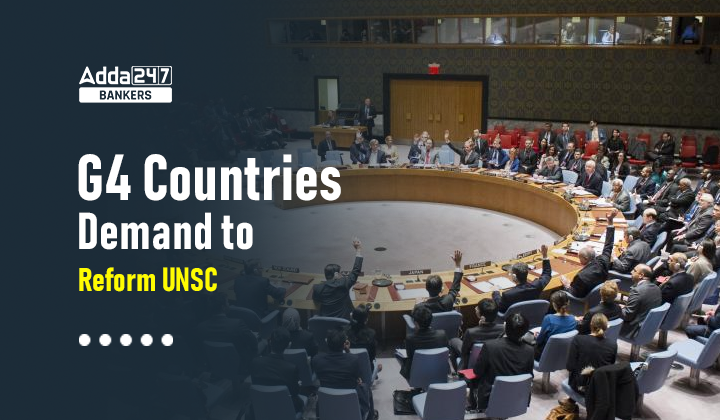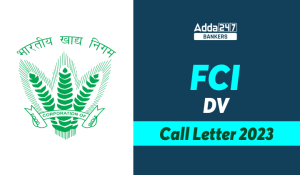Table of Contents
G4 Countries Demand to Reform UNSC: Since there have been discussions about UNSC reforms for more than 20 years, nothing has actually changed. Nothing significant has yet occurred in response to demands made by other big countries, such as the G4’s pledge that the UNSC will be expanded.
G4 Countries Demand to Reform UNSC: Key Points
- India, Brazil, Germany, and Japan, collectively known as the G4, have reiterated that it is “indispensable” to reform the Security Council by increasing the number of permanent and non-permanent seats for the UN body to better address the “ever-complex and evolving challenges” to the maintenance of international peace and security.
- They emphasized the necessity of changing the Security Council as soon as possible in order to increase its legitimacy, effectiveness, and representativeness by taking into account the realities of the modern world, especially developing nations and major contributors.
- The Security Council might be expanded to include better representation for Africa as well as more methodical procedures for additional voices at the table in order to make it more representative.
- The G4 Ministers reaffirmed their strong commitment toward the immediate start of text-based discussions in the Inter-Governmental Negotiations (IGN), based on a single document, with an eye toward its acceptance in the General Assembly.
- The Ministers also decided to step up communication with all interested Member States, as well as those nations that support reform, to seek concrete results within a set time limit.
- The Common African Position (CAP), as established in the Ezulwini Consensus and the Sirte Declaration, had the G4 Ministers’ unwavering support.
United Nations Security Council (UNSC)
- The United Nations Security Council (UNSC) was established in 1945 and is one of the United Nations’ five core organs, entrusted with maintaining international peace and security, as well as accepting new members and approving any amendments to the UN Charter.
- It has the authority to form peacekeeping operations, impose international sanctions, and authorize military action through Security Council resolutions.
- It is the only UN body with the authority to issue binding resolutions to member nations.
- On January 17, 1947, the United Nations Council had its first session in London.
- The United Nations Security Council has both permanent and non-permanent members. The Council has a total of 15 members, out of which 5 are permanent and 10 are not permanent. The United Nations General Assembly (UNGA) elects non-permanent members for two-year terms.
- China, France, the Russian Federation, the United Kingdom, and the United States are the five permanent members.
- The five permanent members are granted ‘great power unanimity,’ often known as veto power, which implies that if any of these countries veto a resolution, it cannot be passed even if it has the required 9 votes.
- Headquarters: New York
G4 Countries Demand to Reform UNSC in Hindi
Group of four (G4)
- The G4 is a group of countries seeking permanent membership in the United Nations Security Council (UNSC).
- Members: India, Brazil, Germany, and Japan
- It was formed in 2004.
- France is in favor of the G4 and an African representative being added to the permanent membership list and has no issues with the veto being extended to other permanent members whereas the UK supports the G4 as new members but with no veto authority.
Current Affairs
| Current Affairs April 2022 | |




 FCI Assistant Grade 3 Previous Year Ques...
FCI Assistant Grade 3 Previous Year Ques...
 FCI Manager Previous Year Question Paper...
FCI Manager Previous Year Question Paper...
 FCI DV Admit Card 2023 Out, Download FCI...
FCI DV Admit Card 2023 Out, Download FCI...





